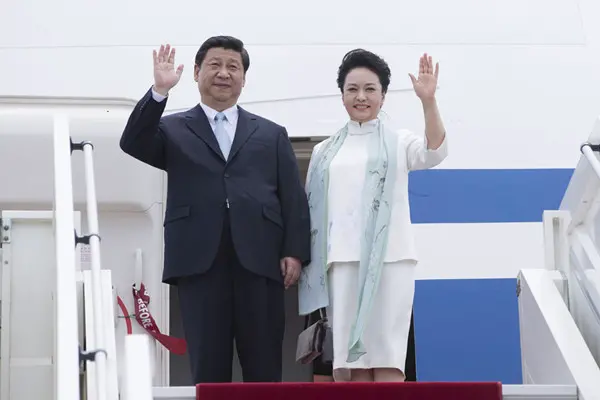To boost infrastructure development, governments must provide far more detailed project plans and better regulatory frameworks to attract private investors, experts said here on Thursday.
Sri Mulyani Indrawati, Managing Director of the World Bank, said there was plenty of money ready to be invested in infrastructure projects but that many countries were not doing what they needed to secure it.
"Some say there is no money for infrastructure projects but pension and investment funds manage trillions of dollars. Many of the UN's new Sustainable Development Goals need infrastructure to make progress on prosperity and eliminating poverty," she told a panel prior to the World Bank-International Monetary Fund Annual Meetings in Lima.
"There is a vision that infrastructure should be built with public money but demand is high and public resources are limited. Private money is equally important so finance ministers need good policy frameworks in place to attract it," said Indrawati, former finance minister of Indonesia.
Many countries can boast the projects they want but cannot put together feasibly and financially attractive proposals to bring in private partners, she said.
"Countries have to be clear about what they want when they ask for infrastructure financing. They have to show private partners that they can manage the risk over the long-term, for 25 or 30 years."
Peru's Minister of Housing, Construction and Sanitation, Milton von Hesse, backed up Indrawati, explaining how Peru had become an example in the region.
"Without investment in infrastructure, our country will not develop. In the last 10 years, we have doubled public spending on infrastructure from 3 to 6 percent of GDP," he said.
According to Von Hesse, that level of commitment showed the private sector that Peru was worth investing in. This has seen the country issue concessions worth over 20 billion U.S. dollars in infrastructure projects, including for airports, ports, highways, and energy.
In an interview with Xinhua, Roberto Urrunaga, Associate Dean of Economics at the country's Pacific University, pointed to China' s interest in financing the Trans-Oceanic Railway as evidence of Peru's success.
"This is a fantastically ambitious project," said Urrunaga of the railway that would link Peru's Pacific coast to Brazil on the Atlantic, thus reducing the time for cargo transit.
"The concession process put in place by Peru has shown Chinese companies that this is a country worth investing in, whether in mining or infrastructure," said the professor.
"Chinese companies are already looking to participate in the expansion of the Lima metro system and the expansion of the port of Callao. Obviously, this would have direct benefits for China as well, but Peru and China are working to make these projects possible," he said.
The Trans-Oceanic Railway was high on Premier Li Keqiang's agenda when he visited Latin America in May.
During his visit to Peru, China and Peru agreed to carry out a feasibility study on the mammoth railway project and to boost infrastructure construction in the Andean country.
 简体中文
简体中文

